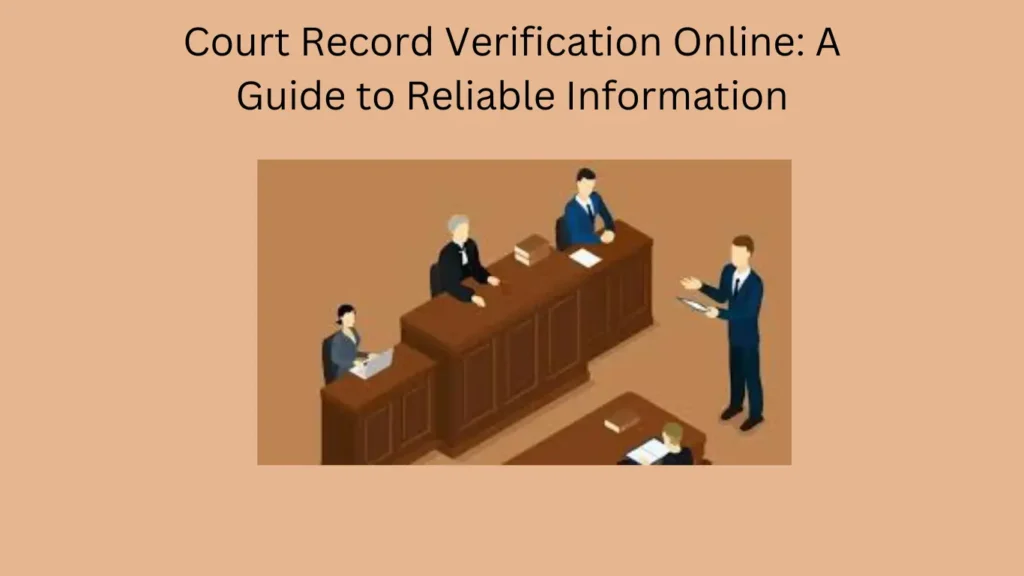Introduction
Court record verification is an essential process for individuals and businesses seeking reliable information about a person’s legal history. With the advent of online resources, this process has become more accessible but requires careful consideration to ensure the information obtained is accurate and up-to-date.
1. Understanding Court Records
Court records typically include information about criminal, civil, and family court cases. They can provide valuable insights into a person’s legal history, including any criminal convictions, civil lawsuits, or family disputes.
2. Importance of Court Record Verification
Verifying court records is crucial for making informed decisions, such as hiring an employee, renting a property, or entering into a business partnership. It helps assess potential risks and liabilities associated with an individual.
3. How to Verify Court Records Online
- Start by identifying the jurisdiction where the court case was filed.
- Visit the official website of the relevant court or use online databases like PACER (Public Access to Court Electronic Records) for federal cases or state-specific databases for local cases.
- Enter the person’s name and other relevant information to search for court records.
- Review the search results carefully, ensuring they match the person’s identity and the timeframe of interest.
4. Factors to Consider
- Accuracy of Information: Verify that the information obtained is accurate and up-to-date.
- Legality: Ensure that the use of court records complies with relevant privacy and data protection laws.
- Reliability of Sources: Use reputable sources and verify the authenticity of the information obtained.
- Timeliness: Check the date of the court records to ensure they reflect recent information.
5. Privacy and Data Protection
It’s important to respect individuals’ privacy rights when verifying court records online. Avoid sharing sensitive information obtained through court records and adhere to relevant privacy laws and regulations.
Conclusion
Court record verification online can provide valuable insights into a person’s legal history, but it’s essential to approach this process with caution. By following the steps outlined above and using reliable sources, you can ensure that the information obtained is accurate, reliable, and respectful of individuals’ privacy rights.
For further Inquires Contact Us
FAQs
Why is court record verification important?
- Court record verification is crucial for making informed decisions, such as hiring, renting, or entering into partnerships, by assessing potential risks associated with an individual’s legal history.
How can I verify court records online?
- Start by identifying the jurisdiction and then visit the official website of the relevant court or use online databases like PACER for federal cases or state-specific databases for local cases. Enter the person’s name and search for records.
What information do court records typically include?
- Court records include information about criminal, civil, and family court cases, providing insights into legal disputes, convictions, and other relevant matters.
How can I ensure the information obtained is accurate?
- Verify the information against official sources and ensure it matches the person’s identity and the timeframe of interest. Use reputable sources and consider consulting legal professionals if needed.
What are the privacy implications of accessing court records online?
- It’s important to respect individuals’ privacy rights and adhere to relevant privacy laws and regulations when accessing and using court records obtained online. Avoid sharing sensitive information obtained through court records.
